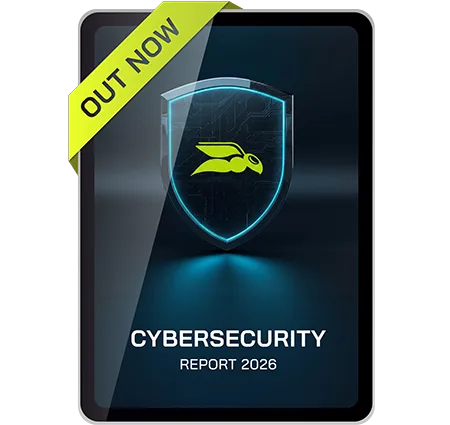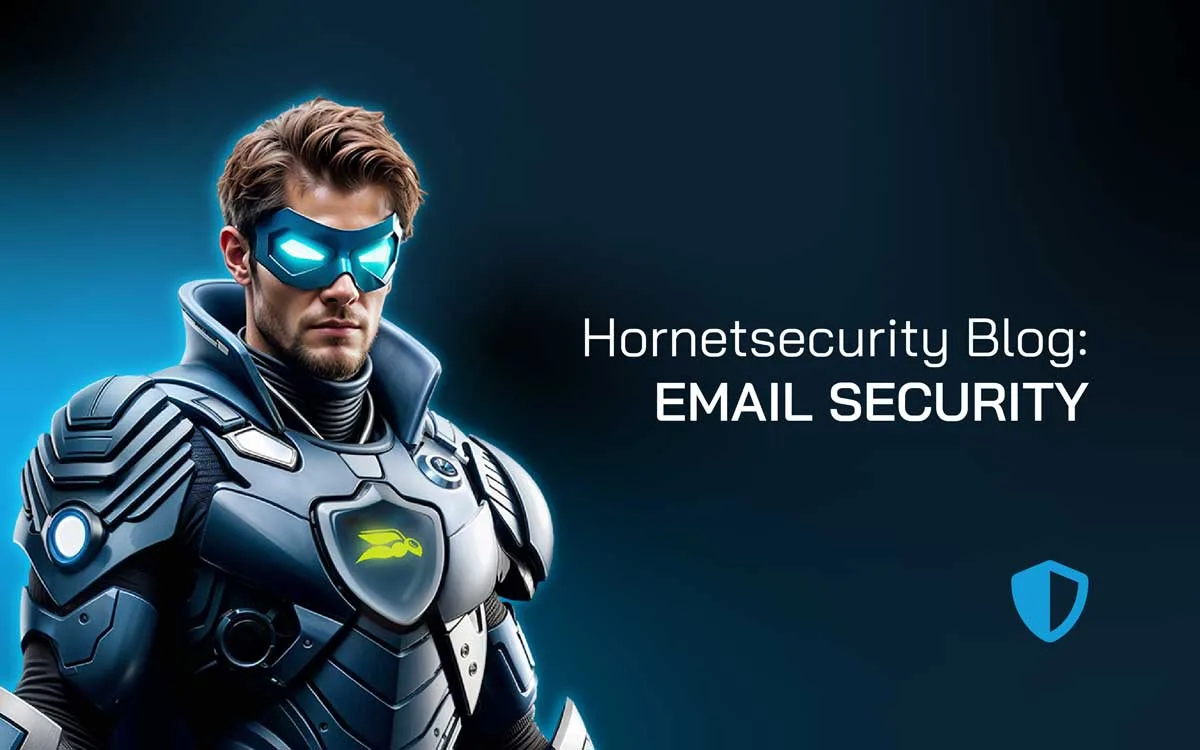

Christmas Scams: How Smarter Hackers Target Businesses and Shoppers Alike
For retailers, IT teams, and anyone trying to finish the year strong, December is a strange mix of record sales, last-minute projects and inbox chaos. While customers hunt for deals and employees juggle family plans with deadlines, attackers quietly prepare their own “Cyber Christmas” – a time when Christmas scams pay better than almost any other point in the year.
In this article, we will explore why cyberattacks increase in December, guide you through the modern ’12 Scams of Christmas’, and provide practical steps to enhance your cybersecurity during the holiday season – whether you’re running a Microsoft 365 environment or just trying to shop safely from the sofa while avoiding targeted Christmas phishing scams in your corporate inbox.
Why Cyberattacks Surge During the Holiday Season
During the holiday season, cyberattacks surge because several risk factors stack up at the same time:
- People are distracted and rushed: End-of-year stress means employees skim emails and approvals, making them more likely to fall for phishing, fake invoices, and other social engineering attacks.
- More online shopping on work devices: Staff use corporate laptops and phones for personal purchases, deliveries, and account sign-ups. This floods inboxes with order and shipping messages that attackers can easily spoof to hide malicious links or attachments.
- Security teams are understaffed: With IT and SOC teams running on skeleton crews during holidays, patches may be delayed and alerts investigated more slowly, giving attackers a bigger window to succeed and causing incidents to escalate further.
- Attackers use AI and automation: Cybercriminals leverage AI to write convincing, localized phishing messages at scale and combine them with modern phishing kits that can steal MFA codes and session cookies, making scams look like normal business communication.
- Expanded cloud attack surface: With hybrid work and heavy use of tools like Outlook, Teams, SharePoint, mobile apps, and SaaS, there are many more entry points. This makes Zero Trust principles —continuous verification, least privilege, and strong recovery plans — essential to stay resilient during “Cyber Christmas.”
The 12 Scams of Christmas
The phrase “12 Scams of Christmas” started as a catchy awareness slogan, but it sticks because it’s accurate: the same patterns repeat every year, just with new branding and better tooling. Most Christmas scams are really about abusing trust in email, cloud accounts and payment flows – exactly the channels businesses and shoppers rely on most.
Fake Order Confirmations and Delivery Notifications
The usual gang of suspects: an email or text pretending to be from your favorite courier or marketplace, declaring a failed delivery, a customs fee you’ve got to pay, or a problem with your account. Instead of a reliable tracking portal, that link sends you to a page where phishers and malware creators hang out.
During the holidays, when everyone is waiting for multiple gifts, even seasoned users can be tricked into clicking.
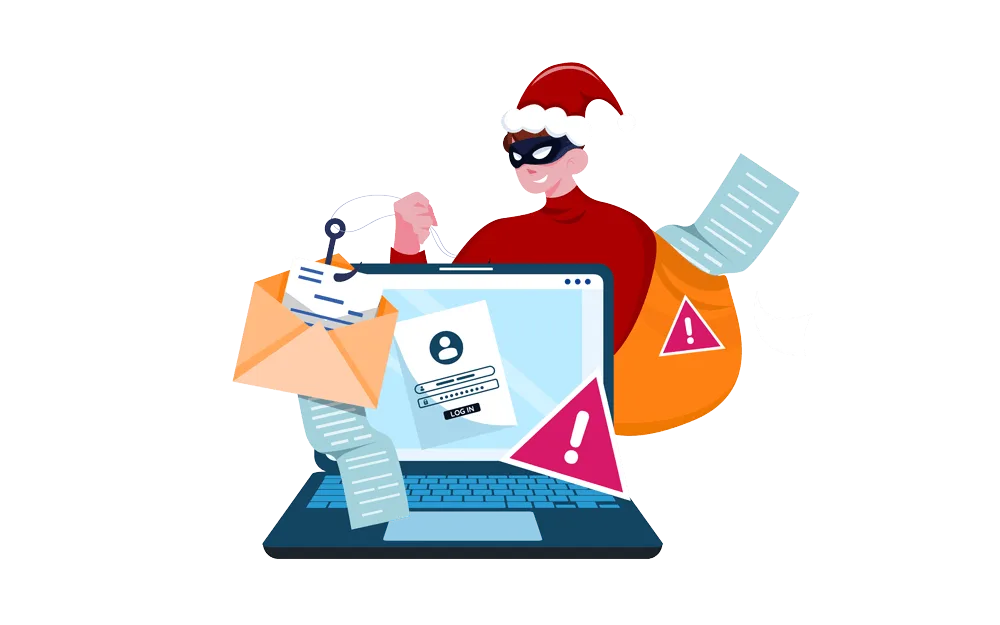
Christmas phishing scams disguised as charity appeals

The impact on businesses increases when staff use corporate email addresses for shopping or click on fake delivery updates on company devices. A single compromised account can quickly lead to lateral movement across your Microsoft 365 tenant.
As people tend to be more generous in December, attackers ramp up their Christmas phishing scams, pretending to come from well-known charities or urgent disaster relief funds. These emails often use emotional language and tight time limits to push users onto fake donation pages, and they feature familiar branding.
These campaigns steal card details from individual donors and can also target businesses through bogus ‘corporate giving’ requests or fake sponsorship invoices. A good way to avoid scams is to verify the charity’s website directly and donate through their official channels instead of clicking on links found in emails.
Gift Card and “Urgent CEO Request” Fraud
Business email compromise doesn’t take a break for the holidays. In fact, attackers often lean into seasonal themes, sending messages that appear to be from executives asking assistants or finance staff to urgently buy gift cards for clients or staff parties. The money is laundered through the cards, and the attacker disappears.
These scams work because they mix authority, urgency and a plausible Christmas story. Clear internal processes for approvals, plus verification via a second channel such as Teams or phone, are the best antidote.

Compromised Holiday E-Cards and Attachments
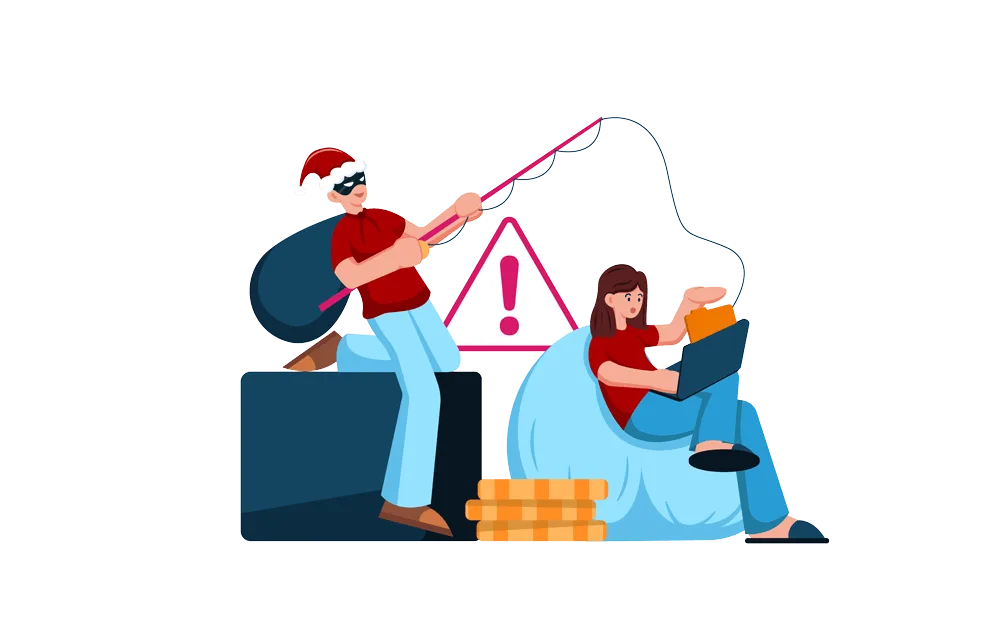
Digital greeting cards are a nice gesture, but they’re also an easy cover for malicious links and payloads. Fake card notifications or “holiday photo collections” often hide malware inside attached archives or point to drive-by download sites. Once opened on a corporate machine, that festive screensaver can become the first stage of an intrusion.
Modern email security can sandbox suspicious attachments and links, but user awareness still matters. If you are not expecting an email from a supplier, it is safer to verify it before opening.
Account Takeover via Attacker-in-the-Middle Kits
Attacker-in-the-middle phishing kits intercept login traffic between the victim and the real service, allowing the attacker to steal passwords, one-time codes and session cookies. At Christmas, these kits are wrapped inside fake shopping, courier or bonus-payment emails that coax users onto spoofed login pages.
Once an attacker has gained access to a live session, they can bypass multi-factor authentication and access email content, cloud storage, and other connected services. From there, internal fraud or data theft is only a small step away.
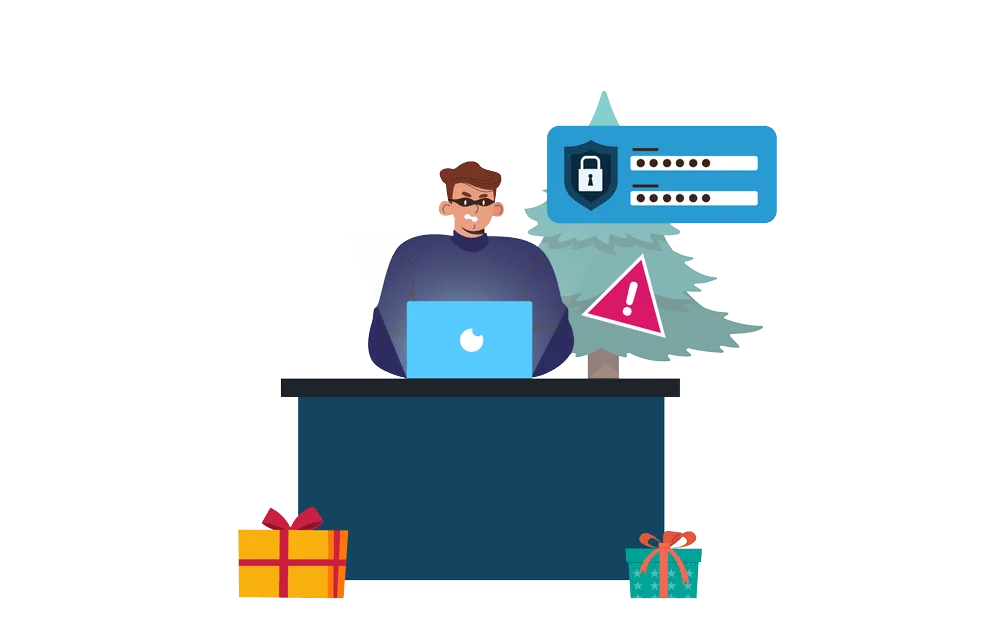
Malicious TXT and DOC Attachments Disguised as Invoices

Hornetsecurity’s Cybersecurity Report highlights a worrying trend: TXT and DOC file attachments, long considered relatively harmless, are being abused as new malware delivery vehicles. During the holiday rush, fake invoices, order summaries and shipping documents using these formats are an easy way to smuggle code past overworked staff.
If your filters are only dialled in for classic executable attachments, these newer formats can slip through. Sandboxing and content disarm-and-reconstruct (CDR) technology make it much harder for this vector to succeed.
Beware of Fake Shopping Sites and “Too-Good-To-Be-True” Deals
Every December, fake e-commerce sites that closely mimic real brands pop up, often boosted by malicious ads or search engine manipulation. They lure in unsuspecting customers with limited-time mega deals on popular gadgets, before collecting their card details and personal information and vanishing overnight.

Social Media Giveaways and Influencer Impersonation

On social networks, attackers create fake profiles impersonating brands or influencers, promising huge Christmas giveaways or discount codes. To enter, victims are asked to follow a link, share personal data, or install a mobile app that quietly harvests credentials.
Remind your staff that they should not use corporate email addresses or devices to register for social media promotions, as this is key to mitigating this risk.
Smishing Scams During the Holidays
SMS-based attacks (smishing scams) during the holidays are rising alongside email scams. Fake delivery texts, bogus bank alerts, and “out of stock, click to re-confirm” messages often contain short, obfuscated links that are hard to inspect on a small screen.
Once a victim has tapped on the link, mobile browsers and apps may automatically open login pages or prompt for card details. Encourage your employees to treat text messages with the same caution as emails and to access services via official apps or saved bookmarks.

Compromised Collaboration Links and Shared Drives
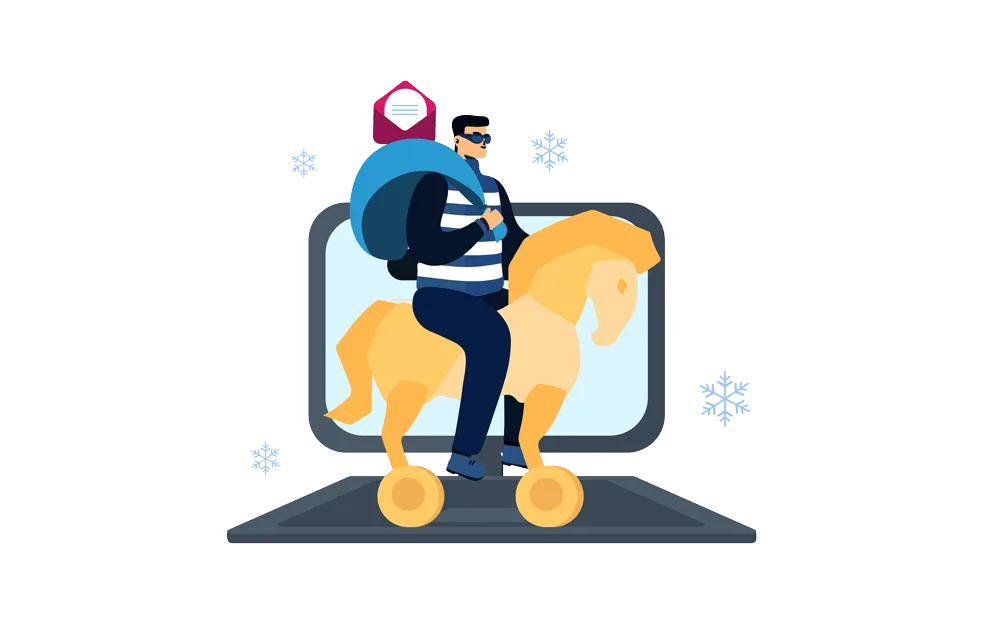
Attackers are increasingly abusing shared links in cloud services, such as SharePoint, OneDrive and Teams. A seemingly harmless link to an ‘updated Christmas rota’ or ‘holiday campaign assets’, for example, could actually point to a malicious file or a phishing portal hosted in a compromised tenant.
As the link appears to come from a trusted colleague or partner, staff are more likely to grant access or sign in without thinking. It is therefore crucial to tighten external sharing policies and monitor access permissions.
Ransomware-Laced “Festive” Downloads
Free festive wallpapers, screensavers, browser extensions or games can hide far more than snowflakes and jingles. Attackers package loaders and remote-access tools inside seemingly innocent downloads, counting on users to bypass controls in the name of “just a bit of fun.”
Once inside, those tools can be used to stage ransomware, steal browser-stored passwords, or move laterally to more sensitive systems. Application control and restricting local admin rights on endpoints significantly reduce this risk.

Vendor and Supply Chain Xmas Attack Campaigns

Finally, attackers know that the fastest way into a well-defended enterprise is often through a smaller supplier. In December they step up targeted campaigns against payroll providers, marketing agencies and other third parties, hofaping to hijack genuine email threads and inject fraudulent payment details or malware.
These supply-chain-themed Xmas Attack campaigns can be hard to spot because they abuse genuine relationships and ongoing projects. Essential checks include verifying changes to bank details and monitoring third-party accounts for anomalous behaviour.
Cybersecurity During the Holiday Season: Practical Protection Tips
Holiday threats aren’t unbeatable. The goal isn’t perfection, it’s resilience. By combining smart technology choices with clear processes and regular awareness training, you can meaningfully reduce the impact of Christmas scams on both your organisation and your employees at home.
Make Email and Collaboration Harder to Abuse
Email remains the number one entry point for Christmas cyberattacks, so layered protection is essential. Advanced filters that combine signature-based detection with AI-powered analysis can catch suspicious links, TXT and DOC attachments, and attacker-in-the-middle attacks before they reach end users.
On top of that, security awareness training that uses short, frequent simulations during the holiday period helps employees recognise lures in Outlook, Teams and even their personal inboxes.
Build Resilience with Immutable Backups and Practiced Response
Because ransomware remains a top threat, immutable backups of Microsoft 365 and other critical systems are non-negotiable. Backups should be logically separated from production, protected from tampering, and tested regularly, so you know exactly how long restoration takes.
Equally important is rehearsing your incident response playbook before the holidays. Who takes the first call on Christmas Eve if something goes wrong? How do you communicate with staff if email is down? Practising these scenarios turns theory into muscle memory.
Stay Ahead of Christmas Scams All Year Round
Although December feels like the main event, Christmas scams are just a seasonal skin on year-round attack patterns. The same techniques show up around tax season, major sporting events and shopping festivals in other regions. Phishing scam tactics continue evolving throughout the year, not just at Christmas.
The organisations that cope best are those that treat cybersecurity during the holiday season as part of a broader resilience strategy: layered defences around Microsoft 365, strong identity controls, immutable backups and ongoing security awareness training for everyone.
If you want to see how this can look in your own environment, request a free trial and discover how Hornetsecurity can help you stay ahead of Christmas scams – and every other seasonal campaign attackers dream up.

